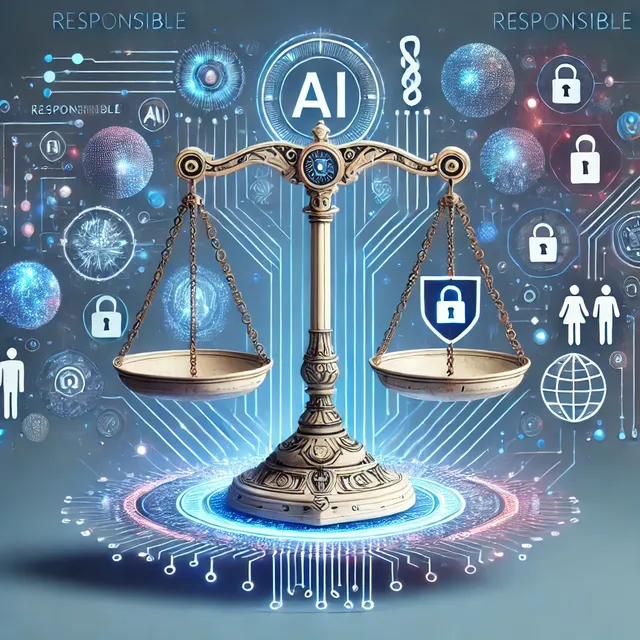🌐 Responsible AI: Understanding the Concept and Overcoming Challenges for an Ethical Future

Artificial Intelligence (AI) is revolutionizing industries, from healthcare to finance, but its rapid advancement brings ethical and social dilemmas. In this context, the concept of Responsible AI emerges — an approach that seeks to align technological innovation with fundamental human values. Let’s explore what this means, its pillars, and the urgent challenges we need to address. 🤖✨
🔍 What Is Responsible AI?
Responsible AI (also known as Responsible AI or RAI) is a set of practices and principles that ensure the development, implementation, and use of AI in an ethical, transparent, and socially beneficial manner. Its goal is to mitigate risks such as discrimination, data breaches, and environmental impacts while promoting trust and equity.
Key Pillars:
Transparency 🧩: Explaining how AI makes decisions, avoiding "black boxes." Example: credit algorithms that justify rejections.
Fairness and Non-Discrimination ⚖️: Correcting biases in data and models to prevent prejudice (e.g., facial recognition systems that fail for people with darker skin tones).
Privacy and Security 🔒: Protecting sensitive data and preventing malicious uses, such as deepfakes.
Accountability 📜: Defining who is responsible for AI failures, such as errors in automated medical diagnoses.
Sustainability 🌱: Reducing the energy consumption of data centers, which already account for 2% of global energy use.
🚧 Challenges of Responsible AI
Despite its importance, implementing Responsible AI is not straightforward. Here are the main obstacles:
Algorithmic Biases and Lack of Diversity
Systems trained on biased data perpetuate inequalities. For example, hiring algorithms that favor white men. The solution? Continuous audits and representative datasets.Fragmented Regulation 🌍
Countries have different laws (such as the EU AI Act in 2025), creating gaps. Global companies must navigate multiple jurisdictions, increasing costs and complexity.Unsustainable Energy Consumption ⚡
Training models like ChatGPT consumes energy equivalent to thousands of homes. By 2025, data centers could consume 25% of U.S. energy, straining renewable resources.Lack of Organizational Awareness 🏢
84% of leaders recognize the importance of Responsible AI, but only 25% have mature programs. Many companies prioritize speed over ethics.Transparency Dilemmas 🎭
Labeling AI-generated content (like videos on YouTube) may reduce public trust. Studies show consumers avoid products explicitly labeled as AI-generated.
💡 Examples of Responsible AI in Action
Google and IBM 🛡️: Use tools to detect biases in algorithms and publish ethical impact reports.
YouTube 📹: Requires creators to disclose the use of AI in realistic content, combating misinformation.
Minds Digital 💼: Developed FraudShield, an anti-fraud system that prevents racial or gender discrimination.
🌍 The Path Forward
To move forward, it is essential to:
Educate Leadership 👩💼: Integrate ethics into corporate culture and align Responsible AI with Corporate Social Responsibility (CSR).
Innovate Efficiently 💡: Adopt low-power chips and sustainable architectures.
Global Collaboration 🤝: Unite governments, businesses, and civil society in ethical standards, such as UNESCO’s AI Agenda.
Conclusion 🎯
Responsible AI is not a luxury but an urgent necessity. If we ignore its challenges, we risk amplifying inequalities, environmental crises, and loss of trust in technology. On the other hand, by adopting ethical practices, we can ensure that AI becomes a force for good, democratizing access to healthcare, education, and security.
The future of AI depends on us. Let’s build it responsibly. 🌟
Upvoted! Thank you for supporting witness @jswit.
0.00 SBD,
0.03 STEEM,
0.03 SP